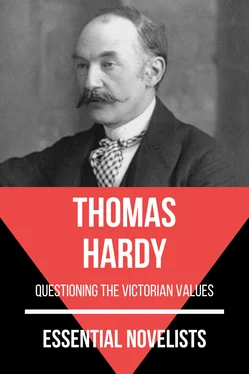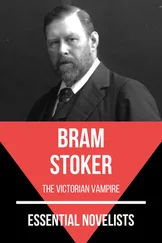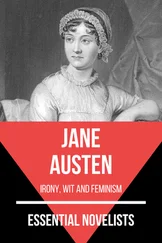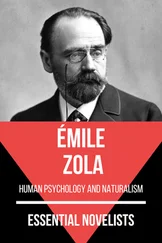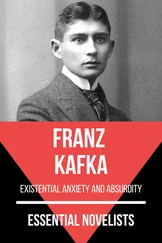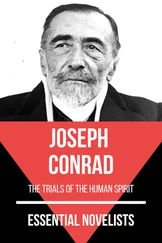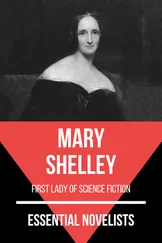She arrived by the ten o'clock train on the day aforesaid, Jude not going to meet her at the station, by her special request, that he should not lose a morning's work and pay, she said (if this were her true reason). But so well by this time did he know Sue that the remembrance of their mutual sensitiveness at emotional crises might, he thought, have weighed with her in this. When he came home to dinner she had taken possession of her apartment.
She lived in the same house with him, but on a different floor, and they saw each other little, an occasional supper being the only meal they took together, when Sue's manner was something like that of a scared child. What she felt he did not know; their conversation was mechanical, though she did not look pale or ill. Phillotson came frequently, but mostly when Jude was absent. On the morning of the wedding, when Jude had given himself a holiday, Sue and her cousin had breakfast together for the first and last time during this curious interval; in his room—the parlour—which he had hired for the period of Sue's residence. Seeing, as women do, how helpless he was in making the place comfortable, she bustled about.
"What's the matter, Jude?" she said suddenly.
He was leaning with his elbows on the table and his chin on his hands, looking into a futurity which seemed to be sketched out on the tablecloth.
"Oh—nothing!"
"You are 'father', you know. That's what they call the man who gives you away."
Jude could have said "Phillotson's age entitles him to be called that!" But he would not annoy her by such a cheap retort.
She talked incessantly, as if she dreaded his indulgence in reflection, and before the meal was over both he and she wished they had not put such confidence in their new view of things, and had taken breakfast apart. What oppressed Jude was the thought that, having done a wrong thing of this sort himself, he was aiding and abetting the woman he loved in doing a like wrong thing, instead of imploring and warning her against it. It was on his tongue to say, "You have quite made up your mind?"
After breakfast they went out on an errand together moved by a mutual thought that it was the last opportunity they would have of indulging in unceremonious companionship. By the irony of fate, and the curious trick in Sue's nature of tempting Providence at critical times, she took his arm as they walked through the muddy street—a thing she had never done before in her life—and on turning the corner they found themselves close to a grey perpendicular church with a low-pitched roof—the church of St. Thomas.
"That's the church," said Jude.
"Where I am going to be married?"
"Yes."
"Indeed!" she exclaimed with curiosity. "How I should like to go in and see what the spot is like where I am so soon to kneel and do it."
Again he said to himself, "She does not realize what marriage means!"
He passively acquiesced in her wish to go in, and they entered by the western door. The only person inside the gloomy building was a charwoman cleaning. Sue still held Jude's arm, almost as if she loved him. Cruelly sweet, indeed, she had been to him that morning; but his thoughts of a penance in store for her were tempered by an ache:
... I can find no way
How a blow should fall, such as falls on men,
Nor prove too much for your womanhood!
They strolled undemonstratively up the nave towards the altar railing, which they stood against in silence, turning then and walking down the nave again, her hand still on his arm, precisely like a couple just married. The too suggestive incident, entirely of her making, nearly broke down Jude.
"I like to do things like this," she said in the delicate voice of an epicure in emotions, which left no doubt that she spoke the truth.
"I know you do!" said Jude.
"They are interesting, because they have probably never been done before. I shall walk down the church like this with my husband in about two hours, shan't I!"
"No doubt you will!"
"Was it like this when you were married?"
"Good God, Sue—don't be so awfully merciless! ... There, dear one, I didn't mean it!"
"Ah—you are vexed!" she said regretfully, as she blinked away an access of eye moisture. "And I promised never to vex you! ... I suppose I ought not to have asked you to bring me in here. Oh, I oughtn't! I see it now. My curiosity to hunt up a new sensation always leads me into these scrapes. Forgive me! ... You will, won't you, Jude?"
The appeal was so remorseful that Jude's eyes were even wetter than hers as he pressed her hand for Yes.
"Now we'll hurry away, and I won't do it any more!" she continued humbly; and they came out of the building, Sue intending to go on to the station to meet Phillotson. But the first person they encountered on entering the main street was the schoolmaster himself, whose train had arrived sooner than Sue expected. There was nothing really to demur to in her leaning on Jude's arm; but she withdrew her hand, and Jude thought that Phillotson had looked surprised.
"We have been doing such a funny thing!" said she, smiling candidly. "We've been to the church, rehearsing as it were. Haven't we, Jude?"
"How?" said Phillotson curiously.
Jude inwardly deplored what he thought to be unnecessary frankness; but she had gone too far not to explain all, which she accordingly did, telling him how they had marched up to the altar.
Seeing how puzzled Phillotson seemed, Jude said as cheerfully as he could, "I am going to buy her another little present. Will you both come to the shop with me?"
"No," said Sue, "I'll go on to the house with him"; and requesting her lover not to be a long time she departed with the schoolmaster.
Jude soon joined them at his rooms, and shortly after they prepared for the ceremony. Phillotson's hair was brushed to a painful extent, and his shirt collar appeared stiffer than it had been for the previous twenty years. Beyond this he looked dignified and thoughtful, and altogether a man of whom it was not unsafe to predict that he would make a kind and considerate husband. That he adored Sue was obvious; and she could almost be seen to feel that she was undeserving his adoration.
Although the distance was so short he had hired a fly from the Red Lion, and six or seven women and children had gathered by the door when they came out. The schoolmaster and Sue were unknown, though Jude was getting to be recognized as a citizen; and the couple were judged to be some relations of his from a distance, nobody supposing Sue to have been a recent pupil at the training school.
In the carriage Jude took from his pocket his extra little wedding-present, which turned out to be two or three yards of white tulle, which he threw over her bonnet and all, as a veil.
"It looks so odd over a bonnet," she said. "I'll take the bonnet off."
"Oh no—let it stay," said Phillotson. And she obeyed.
When they had passed up the church and were standing in their places Jude found that the antecedent visit had certainly taken off the edge of this performance, but by the time they were half-way on with the service he wished from his heart that he had not undertaken the business of giving her away. How could Sue have had the temerity to ask him to do it—a cruelty possibly to herself as well as to him? Women were different from men in such matters. Was it that they were, instead of more sensitive, as reputed, more callous, and less romantic; or were they more heroic? Or was Sue simply so perverse that she wilfully gave herself and him pain for the odd and mournful luxury of practising long-suffering in her own person, and of being touched with tender pity for him at having made him practise it? He could perceive that her face was nervously set, and when they reached the trying ordeal of Jude giving her to Phillotson she could hardly command herself; rather, however, as it seemed, from her knowledge of what her cousin must feel, whom she need not have had there at all, than from self-consideration. Possibly she would go on inflicting such pains again and again, and grieving for the sufferer again and again, in all her colossal inconsistency.
Читать дальше
